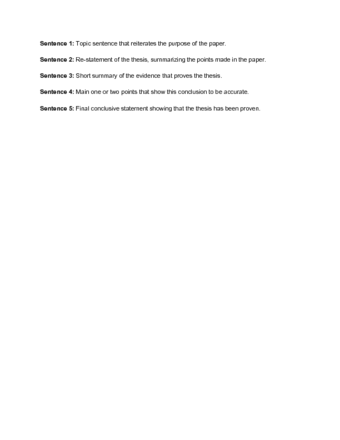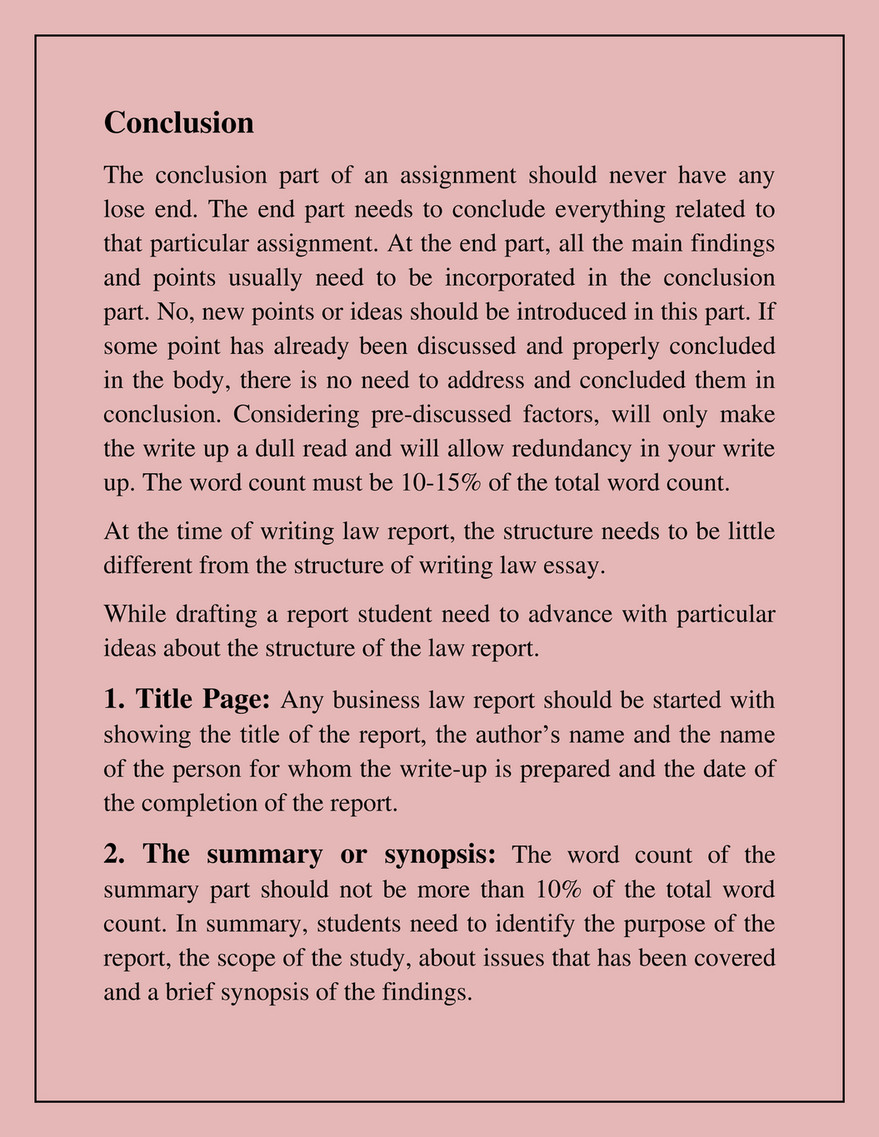Mastering The Art Of Concluding Your Assignment Effectively
How To Write A Conclusion
Keywords searched by users: How do you conclude an assignment How to write a conclusion for an essay, Make a conclusion là gì, How to write conclusion, Report conclusion example, How to conclusion paragraph, Conclusion paragraph, Conclusion essay example, How to write a conclusion for a research paper
What Is A Good Way To End A Conclusion?
When wrapping up your essay, it’s essential to craft a conclusion that leaves a lasting impression on your readers and ties together the key aspects of your argument. To achieve this, you can employ a variety of effective strategies:
-
Summarize the Main Points: Begin by offering a concise recap of the central ideas and arguments you’ve presented throughout your essay. This serves as a quick refresher for your readers, reinforcing the significance of your points.
-
Pose a Thought-Provoking Question: Engage your audience by introducing a compelling and relevant question. This approach encourages readers to contemplate the broader implications of your essay’s subject matter.
-
Incorporate a Quotation: Enhance the impact of your conclusion by incorporating a relevant and impactful quotation from a reputable source. This can help reinforce your essay’s theme or provide a new perspective on the topic.
-
Create a Vivid Mental Image: Paint a vivid picture with words that resonates with your readers. Use descriptive language to evoke emotions or visually convey the essence of your essay’s message.
-
Call for Action: Encourage your audience to take specific actions related to your essay’s subject matter. This could involve personal changes, advocacy, or further research on the topic.
-
Issue a Warning: If your essay highlights potential risks or challenges, conclude by issuing a cautionary note to underscore the importance of addressing these issues.
-
Universalize the Topic: Broaden the scope of your essay by drawing parallels to other situations or contexts. This approach highlights the broader relevance and implications of your discussion.
-
Suggest Results or Consequences: Speculate on the potential outcomes or consequences related to your essay’s subject matter. This can help readers understand the real-world significance of your arguments.
By considering these strategies, you can craft a conclusion that not only neatly wraps up your essay but also resonates with your audience, leaving them with a clear understanding of your topic’s significance and implications.
What Is The Best Way To Conclude A Project?
When wrapping up a project, it’s essential to craft a compelling conclusion that leaves a lasting impact. A well-crafted conclusion serves several vital purposes. First, it should reiterate the primary message or purpose of your project, ensuring that your readers or audience grasp the central idea. Additionally, it should concisely summarize the key points and arguments you’ve presented throughout your project, providing a concise overview for those who may have missed details along the way.
Furthermore, a strong conclusion goes beyond summarization; it connects with the audience on an emotional level or leaves them with a powerful final thought. This emotional resonance or impactful closing statement is crucial for making your project memorable and resonating with your audience.
In conclusion, when concluding a project, remember to restate your main message, summarize key points, and leave your audience with a compelling and emotional final thought that ties everything together. This approach ensures that your conclusion is not only informative but also leaves a lasting impression on your readers or audience.
What Is A Good Conclusion Example?
In summary, this essay has delved into the complex and multifaceted aspects of a specific topic, namely, [insert the topic]. By conducting a thorough analysis of [provide key areas or factors explored], this essay has shed light on its profound impact on [mention the areas or subjects affected]. This deeper comprehension enables society to gain a greater appreciation of the concept that [articulate the core insight or realization]. This exploration was conducted as of May 20, 2023, and serves as a valuable contribution to the ongoing discourse on this subject.
Collect 17 How do you conclude an assignment







Categories: Aggregate 62 How Do You Conclude An Assignment
See more here: c1.chewathai27.com

Highlight the key argument presented in the essay. Summarise the answer to the essay question, as signalled in the introduction. Refer back to the essay question to show that it has been answered. Reinforce the main theme of the essay, which has been established in the introduction.
- Include a brief summary of the paper’s main points.
- Ask a provocative question.
- Use a quotation.
- Evoke a vivid image.
- Call for some sort of action.
- End with a warning.
- Universalize (compare to other situations).
- Suggest results or consequences.
- Restate the main point you’re making in your writing.
- Summarize your main points or arguments.
- Tie all this together with a final emotive and powerful thought or a few closing lines.
Learn more about the topic How do you conclude an assignment.
- Writing a Conclusion – University of Newcastle
- Writer’s Web: Writing Effective Conclusions
- How to Write a Conclusion for Every Writing Project – Blinkist Magazine
- 17 Essay Conclusion Examples (Copy and Paste) – Helpful Professor
- Concluding Sentence | Overview, Examples & Starters – Study.com
- Conclusion Paragraphs – EdTech Books
See more: c1.chewathai27.com/category/money-policy